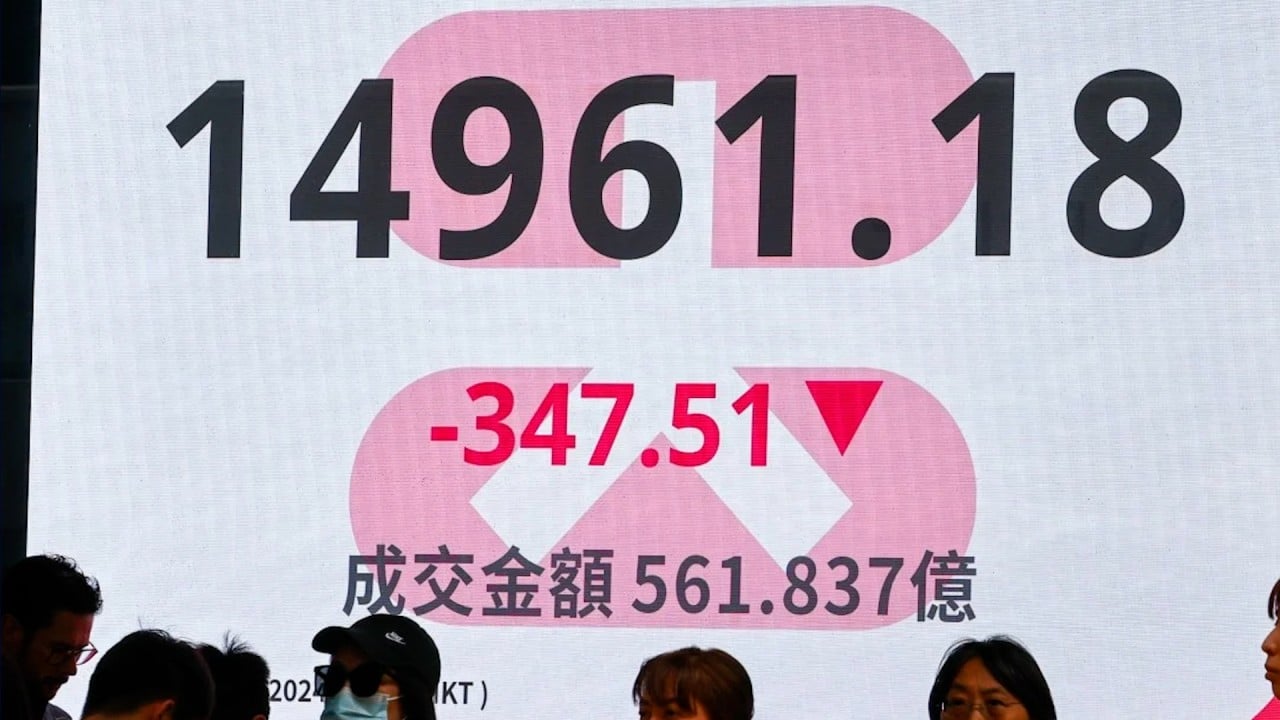Beijing bars investors from lending securities during restricted periods, signalling further support for beleaguered stock market

The move suggests more policies to support the mainland’s bourses will be unveiled in the coming weeks and months, analysts said.
“In the past, some shares held by original shareholders or cornerstone investors had restrictions on sale,” said Kenny Ng Lai-yin, a strategist at Everbright Securities International. “However, they could still sell the corresponding shares in the market by lending their holdings. The new rule now restricts this situation, which helps reduce selling pressure in the market.”
While the policy is expected to have “a positive impact on the market”, its direct effect is likely to be limited, as the performance of the bourses hinges on various factors, including the investors’ view of the Chinese economy, geopolitical issues as well as global interest rates, Ng said.
China’s stock market rout hurts more than fiction of Blossoms Shanghai
China’s stock market rout hurts more than fiction of Blossoms Shanghai
Earlier this month, authorities announced that China’s economy expanded by 5.2 per cent in 2023, higher than expected but at its slowest pace in three decades except for the coronavirus pandemic period.
This year, the growth potential remains shaky, London-based research firm Capital Economics said in a note, adding that the world’s second-largest economy lost momentum in the fourth quarter of 2023.
The latest initiatives will most certainly show investors that Beijing is hell-bent on maintaining market stability and enhancing investor confidence, Ng added.
“I believe there will be more favourable policies in the future to maintain market stability on the mainland,” he said.
“We have seen the mainland actively promoting capital markets since the second half of last year, and the current policies are in line with this trend. The stability of the mainland investment market also plays a positive role in future economic recovery.”
This view is shared by Zhou Ling, a hedge fund manager with Shanghai Shiva Investment in mainland China’s financial hub.
China market stabilising measures ‘steps in right direction’, says UK fund Abrdn
China market stabilising measures ‘steps in right direction’, says UK fund Abrdn
“By suspending the lending of restricted shares, the regulator is sending a message to the market that more policy support measures will be implemented to stem the decline of share prices,” Zhou said. “The move is aimed at curbing short-selling to stabilise the current weak market.”
Other market-boosting measures could include the establishment of stabilisation funds, further cutting the stamp duty trading tax and requiring state-owned companies and institutions to refrain from dumping shares, he added.
Meanwhile, the Shenzhen Stock Exchange fell 9.8 per cent on January 22, when it ended the trading day at 8,479.55, compared with 9,401.35 at the start of the year. It closed Friday trading at 8,762.33.
The People’s Bank of China on Wednesday announced a surprise cut to banks’ reserve requirement ratios from February 5, unleashing 1 trillion yuan (US$140 billion) of liquidity in the market. The decision followed Premier Li Qiang’s call for more “forceful measures” to help stabilise the stock market.
Additional reporting by Daniel Ren






